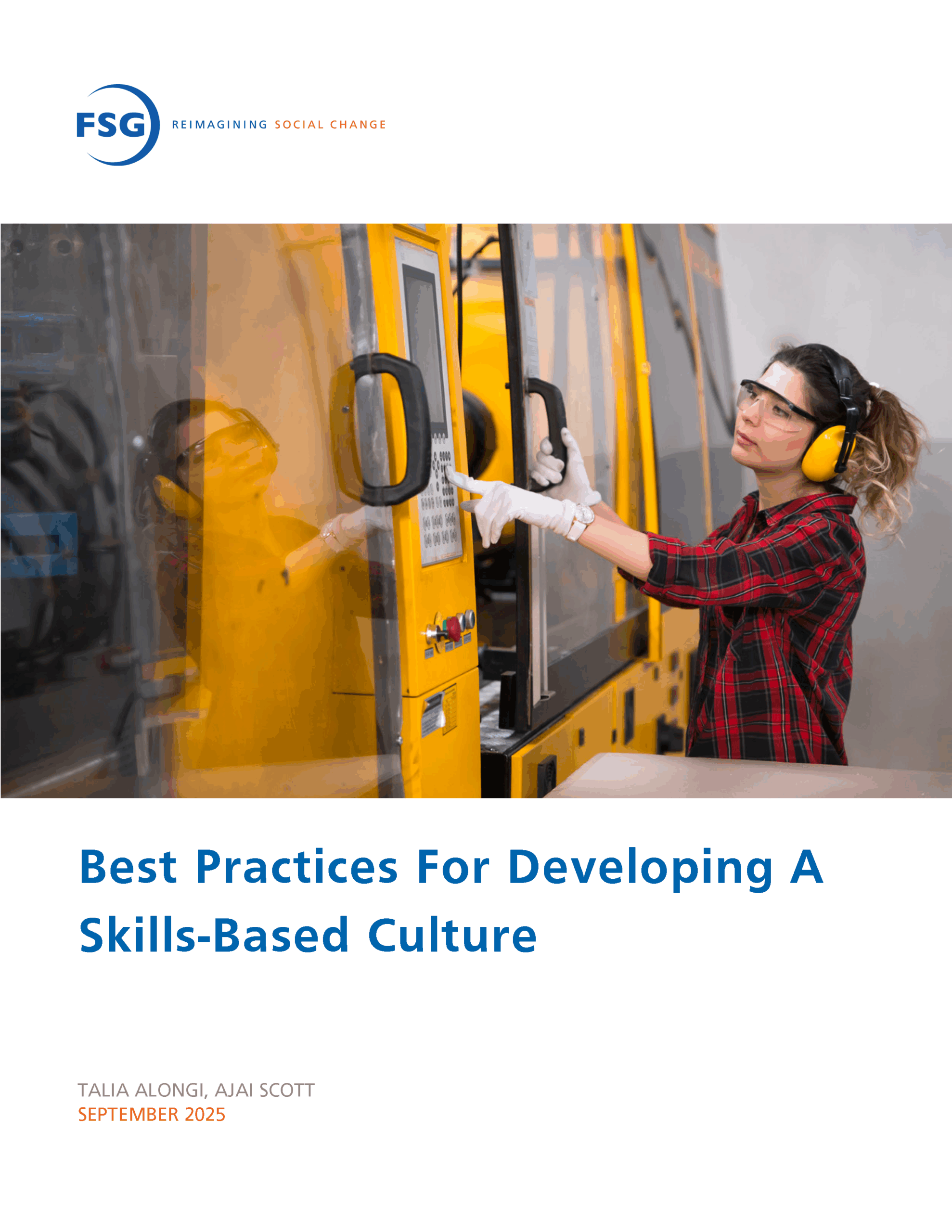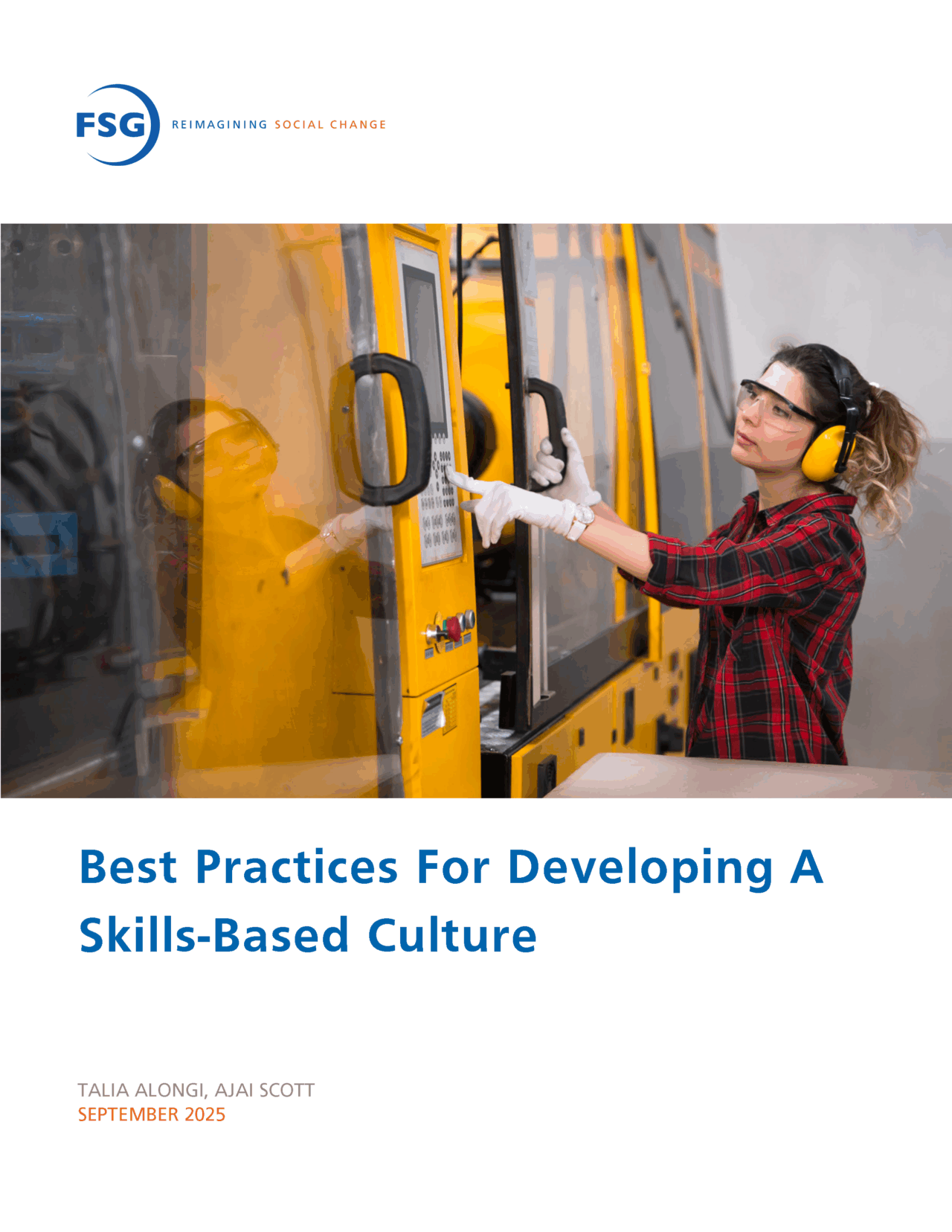In today’s competitive talent landscape, forward-thinking organizations are embracing skills-first approaches that can deliver tangible results like higher-quality hires, stronger retention, and an agile workforce. Many companies start their skills-based efforts with internal policy and practice changes, such as removing degree requirements from job descriptions, but policy changes alone won’t deliver the full value of adopting a skills-first approach. The culture of a company can act as a barrier or an accelerant to the success of that effort. While new policies can open the door to untapped talent, it’s culture transformation that drives lasting business impact and unlocks genuine career mobility for employees.
Key Takeaways
- Culture change efforts are more successful when anchored in a clear skills-based strategy with visible leadership support
- Shifting from degree-focused to skills-focused approaches requires fundamental mindset changes about talent validation
- Hiring managers and supervisors are crucial stakeholders who need specific training and accountability measures
- Long-term success requires patience and understanding of gradual benefits that unfold over 3-5+ years





